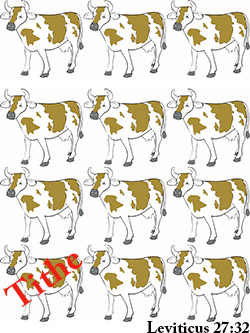We Should Have Learned to …
“We’re not going to bother with any of that marching crap,” said Jeffords to his troops. They were his because he was the only one in town with experience in combat, little as that was.
The villagers were lined up, sort of, in front of him. The idea was that he would prepare them to fight in the great war should their baron call for them. He had hated all the details of military life, the drill, the order, uniforms, and theory. What was important was for people to learn to fight.
Copyright © 2012
Henry E. Neufeld
His troops had spears and crossbows. The crossbows weren’t very good, but they were the preferred hunting weapons in the area. Jeffords suspected any real hunters had hidden those crossbows they actually used to hunt, and these were the remnants.
So Jeffords set about teaching the villagers to use those crossbows. Marksmanship was the order of the day, with a little bit of work with the spears (just in case the enemy got that close) on the side.
Then word came that enemy troops were approaching their own town. The baron had called for them. It was time to go to war.
“There’s no point trying to learn to use crossbows effectively,” said Karl. Karl, much like Jeffords, was the only person with military experience in his town. He was convinced that the peasants could not learn to fight properly, and the only possible way they could be used in battle was if you made them into a coherent unit.
“What we need to learn to do,” he told them, “is to learn to point those spears forward together, hold our shields locked together, and march forward together until those spears are sticking inside our enemies.” He did his best imitation of his drill instructor’s voice.
So Karl’s troops drilled constantly until they could make a solid wall of their shields and a nice hedge of their spears.
Then the word came that they must go to war for their baron.
It so happened that Jeffords’ groops and Karl’s troops faced one another when the day of battle came. Karl couldn’t quite suppress his worry as he saw all those troops carrying crossbows. If they were accurate enough for long enough, things could be very tough for his people.
Across the field, Jeffords had his own worries. If those troops across the field could hold that nice wall of shields and move forward with all those spears pointed straight forward, things could get pretty tough for his men. He was remembering how rarely his folks hit their targets, and it looked like this might start at longer range than they’d trained for.
Then the orderly line of troops started to march forward with their shields in a wall. On the other side crossbows began to fire. It was ragged—they’d never really learned to fire in a volley. Most of the bolts ended up in that wall of shields, though an occasional yell indicated a hit.
Jeffords realized the only possibility was for his troops to get behind. He began to yell the order. Unfortunately, nobody had practiced this particular maneuver. In fact, they had barely practiced any maneuvers.
So some chose to run around the right flank, others tried for the left flank, some thought it must be a retreat and started to run away, and there were a few who seemed to thing they should run forward with their spears.
Unfortunately (this time for the other side), some of Jeffords’ troops did make it around and it turned out that they did know a bit more about fighting than Karl’s troops did.
When the battle came to a close, or more accurately wound down due to the dwindling number of participants, there were quite a large number of bodies on the ground. Some of them were pretending, but who could tell?
Jeffords pulled himself up off the ground. His leg was cut wide open and he knew he wasn’t going to be walking soon. He looked at the mess.
“Maybe we should have learned how to march,” he muttered.
Across the field Karl looked around. He was in better shape than Jeffords, but he didn’t have much fight left in him.
“Maybe we should have learned how to fight,” he said.
(This story was written for and submitted to the one word at a time blog carnival: Marching.)
Discover more from The Jevlir Caravansary
Subscribe to get the latest posts sent to your email.



